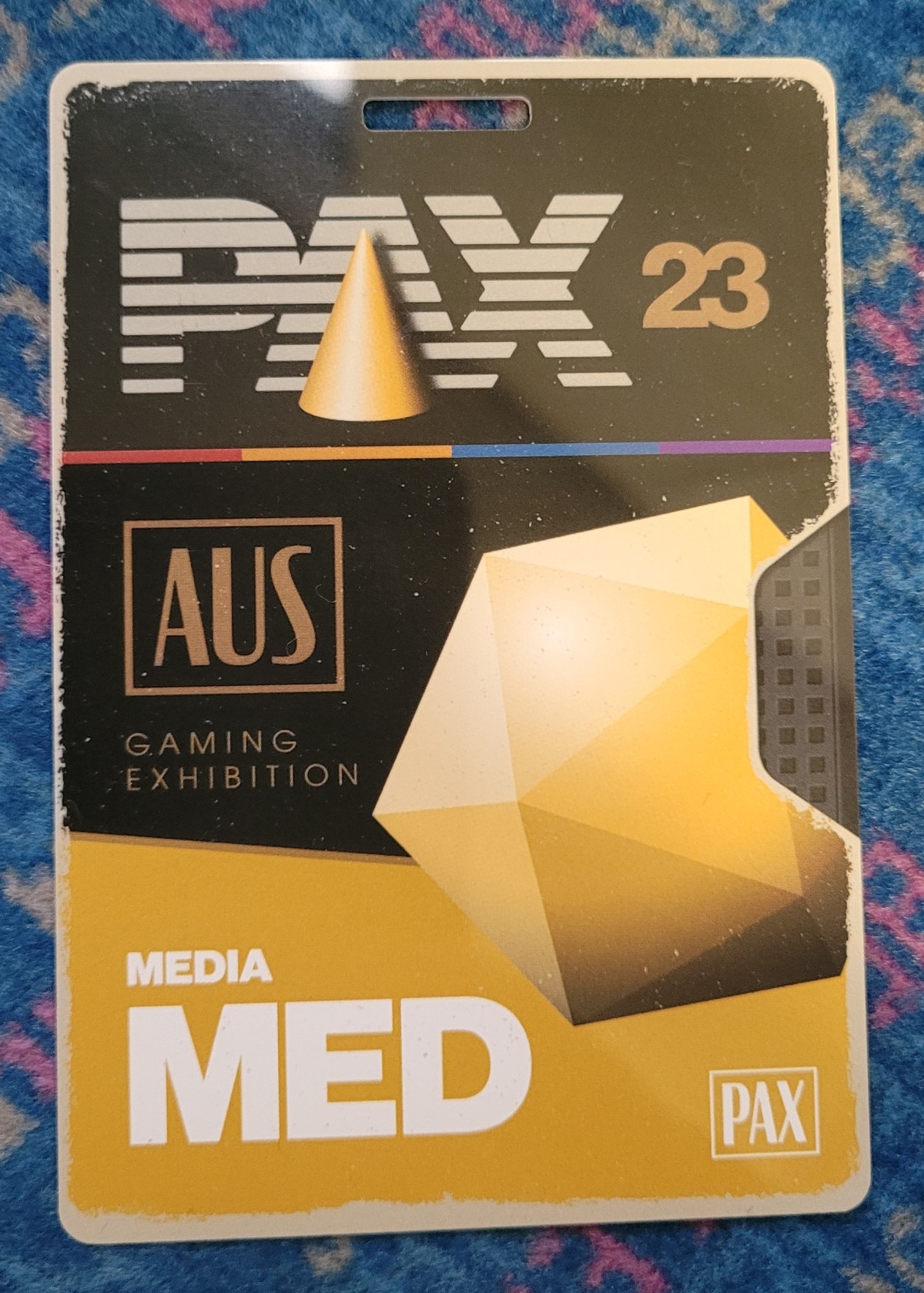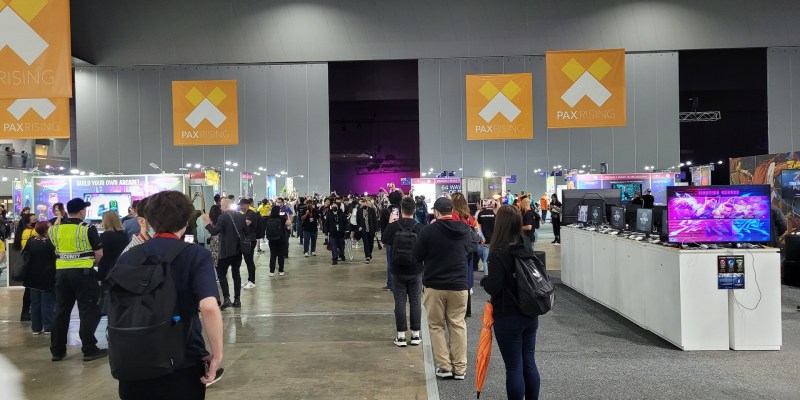Ten years ago, PAX Australia began.
An offshoot of the Penny Arcade webcomic, the first Penny Arcade Expo, as it was then known, was held in Washington in 2004. Over subsequent years, PAX grew and evolved, branching out across America to Boston (PAX East), Texas (PAX South, discontinued), and Philadelphia (PAX Unplugged), in addition to its original Seattle show (rebranded as PAX Prime and now PAX West).
But perhaps its strangest expansion was down to the antipodes.
In 2011, seven years after its first Washington expo, and three years after its second Boston location opened up, something bizarre happened.
PAX decided to go to Australia.
It was unusual that a largely American convention based on a largely American webcomic decided that its second expansion would be to Australia. Penny Arcade was a very American thing, full of American cultural references and mores. It would make more sense for the show to saturate the American convention market first, adding more US locations and perhaps jumping the border to Canada.
But that didn’t happen. Instead, we got PAX Australia.
Australians like to think we’re nothing like Americans. We have an idea that we’re above the perceived self-serious cowboy capitalism of the US; that, while loud and adventurous, Australians have a laconicness that is anathema to American brashness. That we stand apart from the American cultural hegemony.
Australians are secretly very American. Most of our pop culture is imported from America. We are increasingly modeling much of our politics on American policies and trends. America, as the leader of the Western World, has “no closer ally” than Australia.
There is a profound cultural cringe around our own Australian entertainment properties, and a sense that American pop culture imports are just better. This idea exists in tandem with the idea that Americans are silly and annoying and everything they make is inelegant and boorish.
You may see the problem in this contradiction.
And lo, you get PAX Australia.

PAX Australia, held annually in Melbourne, Victoria, exists within a strange nexus of American culture and Australian values that somehow transcends both. While it could have easily fallen for this self-loathing elitism that permeates most Australian reactions to American pop culture invasions, PAX Australia deftly adapted the best parts of both cultures and became something more.
It helped that the team behind the Australian expansion were themselves Australian, headed by local industry veteran Guy “Yug” Blomberg. The team had a good sense of both “what is PAX” and “what appeals to Australians,” and were able to mix these two conflicting yet complementary elements into a unique event.
PAX Australia remains a strange, wondrous unicorn. It has outlasted many other local video game focused conventions like EB Expo, and attracted a wider and larger audience than longer running events such as Supanova or Oz Comic-Con. It can pull together all these elements, miraculously hold them together, and deliver year after year.
But, if I really had to guess what the secret ingredient was that could elevate a potential disaster into something as powerful and enduring as PAX Australia, I’d probably have to guess “honesty.”
PAX is honest.
Its mix of video games, tabletop games, merch booths, hardware booths, and panels offers something for everyone. The variety can sometimes be overwhelming, but there is always something large to grab your exhausted attention, or something small hidden away to get surprised by.
The attendees have an energy and vitality that is unlike any other convention. There is also a curiosity and openness among the crowd that allows them to get lost in the various attractions that they may not have been planning on seeing.
While, over the years, many large video game publishers have attended PAX, and there are always queues to see the next big thing from the heavy industry hitters, the crowds are not there exclusively to see the newest and shiniest.
Instead, punters young and old flock to the other attractions, exploring interestedly the various booths on offer.
Most delightfully, the PAX Rising indie booths are always jam-packed with eager-eyed players enthusiastic to absorb the exhibitors’ excitement. Seeing players interacting with creators in this unfiltered space where passion and joy for a pet project can be directly communicated is a powerful reminder of how amazing video games can be.

No tightly controlled PR information drip, no NDAs and embargoes, no impeccably scheduled trailers and screenshots — just pure, unbridled love for something made, shared directly between developers and players.
And it’s in these interactions that games are brought alive.
It’s the personal stories from developers about spending days placing that one particular tree, or how the game demo will crash if you jump in a certain direction at a certain time and they couldn’t fix it before the show, or how that character was based on that one guy they went to school with.
Or the stories from a player who was sick and a certain developer’s creation was the only thing they could play, or how they gifted the game to a younger sibling and it really cheered them up, or how that character reminded them of that one guy they went to school with who’s no longer around. And thank you.
Always thank you.
I’ve spent ten years attending and covering every PAX Australia for various outlets (including The Escapist). Every year I have seen something new and special. Every year I have seen something familiar and comforting. I have been surprised, puzzled, intrigued. And I have always watched how you (the player/the creator) have interacted with you (the creator/the player).
And I want to thank you too.
I have so many fond memories of PAX Australia. That first show in 2013 as a green reporter, scrambling around the muddy Melbourne Showground between interviews. Giving a packet of Tim Tams to the Vagabond Dog team. Playing Starchildren: Velvet Generation with friends in front of a packed auditorium. Getting unjustifiably drunk the night before and being fed water by some great journo friends on the floor of the media room. That family’s Death Stranding cosplay with an actual real baby. Every year, food court paneer. My friend pulling a Zapdos card worth $5500 from a blind box purchase. Meeting our very own Amy Campbell randomly in line for a panel. All the games I played. All the developers I met.
All the friends I made and saw.
The endless days. The late nights. The sore feet. The smell. All of it.
Thank you for ten years.

